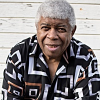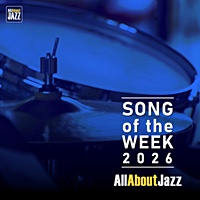Home » Jazz Articles » John Coltrane
Jazz Articles about John Coltrane
John Coltrane: Top Ten Live Albums

by Chris May
This article is a companion piece to John Coltrane: An Alternative Top Ten Albums, which listed ten albums widely regarded as essential items in John Coltrane's discography and discussed another ten of comparable importance. John Coltrane: Top Ten Live Albums narrows the focus to club and concert recordings. Coltrane's live performances had a trajectory which was largely independent of his studio albums; he did not build set lists around his latest release. For instance, Coltrane never “toured" ...
Continue ReadingJohn Coltrane: An Alternative Top Ten Albums

by Chris May
Miles Davis once said that you could recite the history of jazz in just four words: Louis Armstrong, Charlie Parker. To that you need to add two more: John Coltrane. A giant during his lifetime, Coltrane continues to shape jazz and inspire musicians decades after he passed. No other player has come remotely close to eclipsing him. New tenor saxophone stars such as Britain's Shabaka Hutchings, Josephine Davies and Binker Golding have Coltrane as their key formative influence, while Nubya ...
Continue ReadingJohn Coltrane: Giant Steps: Remastered & Super Deluxe Editions

by Chris May
A date for your diary... 18 September 2020. That is when Atlantic / Rhino releases two cracking new editions of John Coltrane's first landmark album, Giant Steps (Atlantic, 1960). The main event is enhanced audio quality, which has noticeably more presence than any previous reissue. The double CD and vinyl Remastered Edition and digital-only Super Deluxe Edition consist of material which has been newly remastered by John Webber at Air Studios in London. The Remastered Edition includes ...
Continue ReadingMy Uncle Played The Sax

by Louis Bryan
Russet face glistening from another realm, eyes dancing to, A Love Supreme, he be-bopped through my boyhood, fingering those keys like crazy, taking and making them notes his own, empyrean melodies to fill the whole room, my ears entirely, too-cool evocations of heroes who've remained mine, and so I still hear Charlie, John, Ornette, Rashan, Lester, all my ethereal idols whose music I first heard, coming from the bell of ...
Continue ReadingSonny's Crib

by C. Michael Bailey
From the outset, pianist Sonny Clark's sophomore effort as a leader is crisp, white-hot hard bop. Leading a standard bop trumpet-tenor saxophone quintet (Donald Byrd, John Coltrane), supplemented with trombone (Curtis Fuller), Clark and his most reliable rhythm section of bassist Paul Chambers and drummer Art Taylor carve five dictionary examples (with alternate takes on the CD) of the music evolving from bebop, principally on the East Coast (if we consider that cool jazz took root on the West Coast ...
Continue ReadingThe John Coltrane Home in Philadelphia: The Fight to Preserve an Historic Landmark

by Victor L. Schermer
John Coltrane (1926-1967) was in the upper echelon of the greatest jazz musicians of all time. He, along with Louis Armstrong, Duke Ellington, Charlie Parker, Dexter Gordon, Miles Davis, and other innovators, changed the face of jazz forever. Beyond such encomiums, Coltrane has become a great African American hero, overcoming his heroin addiction, experiencing a spiritual awakening which he brought to realization in his devoted marriages to Naima and Alice Coltrane, their children, and music (the iconic albums A Love ...
Continue ReadingJohn Coltrane Quartet: Impressions: Graz 1962

by Mark Corroto
This live concert is a welcome excuse to go to your happy place. Sixty years after John Coltrane's quartet toured Europe, this radio broadcast with its excellent audio fidelity opens like a capsule. Both a time capsule and a seed capsule, one that continues to pollinate today's music. The year was 1962 and Coltrane had formed his classic quartet with pianist McCoy Tyner, bassist Jimmy Garrison, and drummer Elvin Jones. Of course the “classic" designation would come later, ...
Continue Reading




















